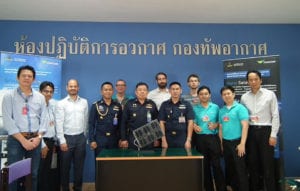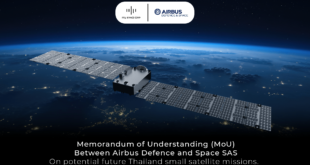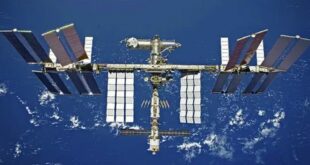
The first satellite of the Royal Thai Air Force (RTAF), named Napa-1, is expected to be launched on board an Arianespace Vega satellite launch vehicle on 24 March 2020. This satellite is part of the RTAF’s new focus on the space domain, which is also likely to include a space situational awareness capability as well as more satellite launches in the future, according to an article published in the Bangkok Post.
The cameras installed on Napa-1 will play a crucial role in the RTAF’s defence system, strengthening national security and preventing threats, an RTAF source said.
The RTAF set up a space operations centre in August 2019 to enhance its operational capacity and upgrade the country’s capacity in space missions. The centre is also expected to support disaster mitigation operations.
The new centre aligns with the RTAF’s strategy, which includes space as a key domain for operations, ranging from surveillance and patrol to the creation and maintenance of satellites and tracking of space objects. Reportedly, the RTAF also plans to propose a draft law to regulate and supervise space operations conducted by the air force and other government agencies.
Meanwhile, the national committee on space policy has set up a sub-committee to map out a policy and operations plan on tracking other satellites and orbiting objects, to keep pace with growing space traffic.
Thai communications, Earth observation, and small satellites for educational purposes are already in orbit, according to a source mentioned in the Bangkok Post article. Increasing numbers of space objects and debris orbiting Earth have led Thailand to enhance its tracking and surveillance capabilities to avoid collisions and service disruptions, the source explained.
The Napa-1 launch has been postponed twice, first in September last year and then in December.





